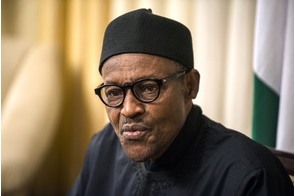Latest News
Nigeria nears GDP and inflation rebasing

News Highlight
Nigeria’s GDP peaked in 2014 at $574.18 billion, according to data from the World Bank. It subsequently fell to $363.85 billion in 2023.
The Nigerian Economic Summit Group (NESG), in collaboration with the National Bureau of Statistics (NBS), today held a public sensitisation event in Lagos on the imminent rebasing of Nigeria’s gross domestic product (GDP) and the consumer price index (CPI), which measures the country’s inflation.
According to the details of the economic rebasing programme, the proposed GDP base year is 2019. The current GDP is calculated with 2010 as the base year. The NBS opted for 2019 as the new base year because economic activities were relatively stable that year, compared to subsequent years disrupted by the impact of the COVID-19 pandemic and policy shifts.
The rebased GDP is expected to capture new economic segments, such as the digital economy, activities of pension fund administrators, the National Health Insurance Scheme, the Nigerian Social Insurance Trust Fund, activities of modular refineries, domestic households as employers of labour, and coverage of illegal and hidden activities.
The rebased GDP is expected to be launched later this January.
Regarding inflation, the proposed new base year for its computation is 2024, with the aim of capturing the structural changes in the economy driven by the removal of subsidies on petrol and the foreign exchange rate.
The constituents of the inflation basket are expected to expand from 740 to 960. Also, the updated 2018 classification system used by the NBS will replace the current 1999 version. This change will increase the number of the CPI’s divisions from 12 to 13. NBS also says inflation data collection processes will be digitised to improve efficiency and accuracy.
In addition to the regular inflation indexes, the NBS will introduce special indexes at both the state and national levels. These include the services, energy, farm produce, and goods indexes.
According to CardinalStone Research, the proposed rebasing will drive improved capturing of economic activities and support planning initiatives.
“The rebasing is likely to shrink the size of the informal economy,” according to the research note sent to Financial Nigeria by CardinalStone. “The rebasing is also likely to result in a significant increase in the reported size of the economy.”
Based on further analysis by the research firm, ratios benchmarked to GDP, such as debt-to-GDP and tax-to-GDP, are expected to adjust due to the implied expansion in GDP size. In particular, select debt sustainability ratios are likely to improve.
CardinalStone further noted that the re-weighting of the CPI basket may result in a reduction in the impact of food and non-alcoholic beverage price changes on the overall headline inflation reading. Housing, water, electricity, gas and other fuels are likely to have a lesser impact on future core inflation readings due to the re-weightings. And transport and restaurants & accommodation services are likely to have a more pronounced impact on future inflation readings due to the re-weightings.
The rebasing of the GDP is likely to generate a political firestorm as the political opposition is likely to criticise it as programmed to deliver mere statistical improvement in the economy. This will reverse the role of the ruling All Progressives Congress (APC) party when, as the main opposition party, it downplayed the leap in Nigeria’s GDP to $510 billion in 2013 following its rebasing. APC said the exercise, which led to Nigeria becoming the largest economy in Africa, was an “orchestrated distraction and a mindless public relations gimmick.”
Nigeria’s GDP peaked in 2014 at $574.18 billion, according to data from the World Bank. Over the next eight years of the APC government, the GDP plunged to $363.85 billion in 2023. According to the October 2024 World Economic Outlook of the International Monetary Fund, Nigeria’s GDP is projected to fall to $199.7 billion in 2024, with the country becoming the 4th largest economy in Africa.
The 2025 appropriation bill presented by President Tinubu to the National Assembly last December set the benchmark rate for inflation in 2025 at 15%. Many commentators have said the target rate was ambitious, inflation having risen to 34.6% in November 2024.
The two inflationary policies of the administration – petrol subsidy removal and floating exchange rate – are expected to have reduced impact on the general price levels in 2025.
The petrol subsidy removal increased the prices of petrol by over 370% between May 2023 and December 2024. The floatation of the naira also saw the currency depreciate by over 260% in the same period.
Related News
Latest Blogs
- What Ould Tah’s tenure at BADEA reveals about his AfDB candidacy
- Implementation strategy crucial for the success of 12-4 education policy
- A senator’s suspension threatens the right of representation
- Tinubu’s promising revolution in infrastructure development
- Has Tinubu’s economic reform started working?
Most Popular News
- Artificial intelligence can help to reduce youth unemployment in Africa – ...
- Nigeria records $6.83 billion balance of payments surplus in 2024
- Soaring civil unrest worries companies and insurers, says Allianz
- Tariffs stir inflation fears in US but offer targeted industry gains ...
- Tinubu appoints new Board Chair, Group CEO for NNPC Limited
- CBN net reserve hits $23.1 billion, the highest in three years









